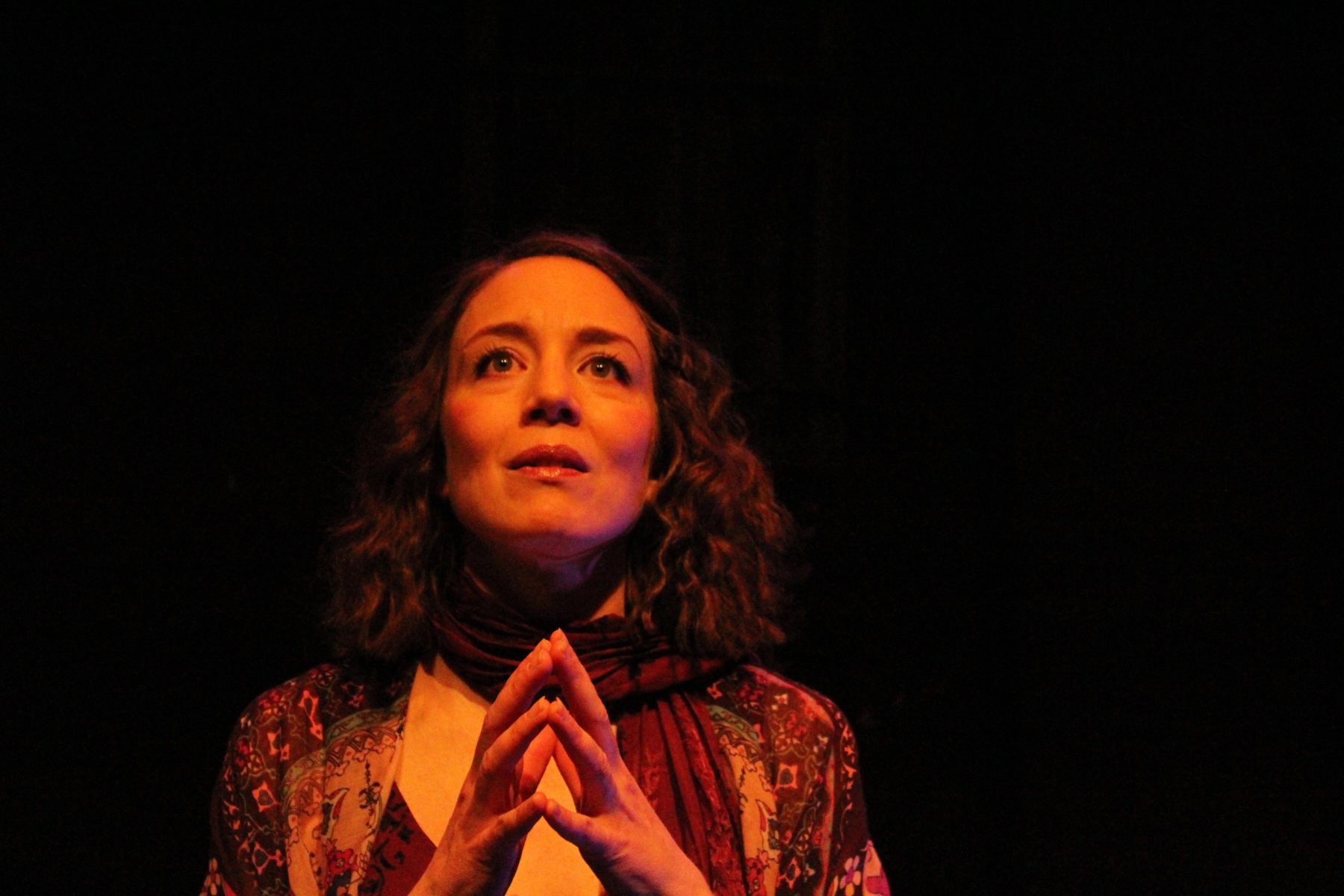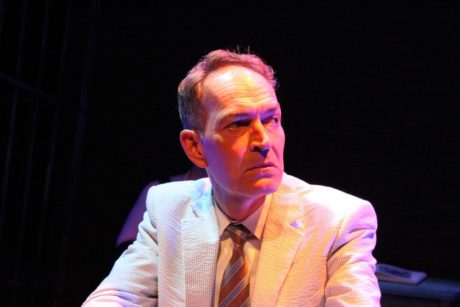Rainbow Theatre Project has presented a trenchant and exciting production of the rarely produced Clothes for a Summer Hotel. The dualistic themes of the great playwright Tennessee Williams are found in abundance here–themes of reality versus illusion, reason versus insanity, and spirituality versus sensuality are all interspersed in this fascinating play. Rainbow Theatre Project should be applauded for attempting a play that is among playwright Williams’ most enigmatic and probing.

The literary characters of F. Scott Fitzgerald and Ernest Hemingway are portrayed in ways that reinforce Williams’ themes and, concurrently, shed new light on the personas of these literary characters. The famous figure of Zelda Fitzgerald dominates the play and it is obvious that it is she that Williams sympathizes with.
Director Greg Stevens keeps the action flowing with pitch-perfect staging and the opening of each act populated by a talented supporting cast with each member playing dual roles. The sound of wind blowing and other sounds (credit Sound Designer Cresent Haynes) add immeasurably to the ambiance of this play set in an asylum in Asheville, North Carolina. The Set Design (also by Stevens) of the exterior of a sanatorium with a beautifully constructed gated entrance is appropriately menacing and atmospheric.
Costume Design by Maria V. Bissex is vivid and sartorially striking. Elliott Shugoll’s Lighting Design is a high point of the production, as it is very evocative and well-chosen for specific moments of drama in the play.
This play is subtitled “A Ghost Story” because ghosts of the past lives of each of the characters appear to show the thwarted realizations and crushed dreams of the artistic, literary and human condition. The faultiness, as well as the captured realizations, of memory are the touchstones here. This ghostly veneer allows this play to be alternately introspective and moody–and these qualities allow the histrionics of these literary characters to be played to the hilt.
Kudos to Director Greg Stevens for diving into the depths of the psychological terrain that is allowed him by virtue of Tennessee Williams’ penetrating text.
As mentioned earlier, Zelda Fitzgerald dominates the proceedings and how lucky we are to have Sara Barker play this role. Barker never misses a dramatic possibility and several of her monologues peering ahead while bathed in white light are mesmerizing and captivating. Barker employed a rapid-fire delivery in many of her scenes and this was very interesting in that this approach reminded me of a “fever dream” or the “stream-of-consciousness” type of musings that creative and mentally fluid individuals often engage in. Barker also employed a southern accent that never dropped in its cadence or inflection in a demanding role that requires a high level of concentration and discipline. (Barker is extremely professional in the conception of her character–but I would only suggest that she adjust the variety and pace of her delivery a bit so that each and every word of her sensitive delineation of character could be fully caught).
Aidan Hughes as F. Scott Fitzgerald had to plumb the depths of his acting ability, as he is portraying a person in an almost all-encompassing state of misery and despair. Hughes possessed a fine command of the stage as he stared dejectedly down at his hands and showed complete frustration at the taunting of his sexuality and humanity. Hughes particularly shone in his scene with Ernest Hemingway (a solid and earthy performance by Matty Griffiths). In this scene, I truly felt as if the literary giants we love had fully come to vivid life and that the fourth wall of the stage had fallen away.

There was a sly and droll sense of comedy (typical of playwright Williams) that was inherent in certain remarks and retorts of the characters as they observed the interactions of the central characters. Williams subtly interfuses the lighter touches in a subtle and natural way to show the completeness of his very human characters. Barbara Papendorp in the dual roles of a nun and Mrs. Patrick Campbell gave heft to her supporting roles. Brian J. Shaw in the dual roles of Edouard and the Intern possessed a focus and level of being “in the moment” that was very appealing–and he also sported a fine French accent.
Seth Rosenke as Gerald Murphy and as Dr. Zeller changed character so completely that it was hard to believe one person was playing both roles. Mary May captured attention in both of her roles, as a nun and as Sara Murphy.
Playwright Tennessee Williams is a master at portraying the human condition–he is especially adept at showing the sadness, alienation, and strivings of those who are marginalized and forgotten. Major critical and commercial acclaim has greeted his earlier works such as The Glass Menagerie and A Streetcar Named Desire, but not enough attention has been given to his psychological and complex later works such as Clothes for a Summer Hotel. That is reason enough to catch this solid interpretation of this play by the Rainbow Theatre Project.
Director Greg Stevens and the entire ensemble of Clothes for a Summer Hotel should be applauded for giving the DC Metro Region an opportunity to view this rarely produced gem.
Running Time: Two hours, with a 15-minute intermission.
Clothes for a Summer Hotel by the Rainbow Theatre Project runs through April 28, 2019, at the DC Arts Center located at 2438 18th Street NW, Washington, DC 20009. Purchase tickets online.




